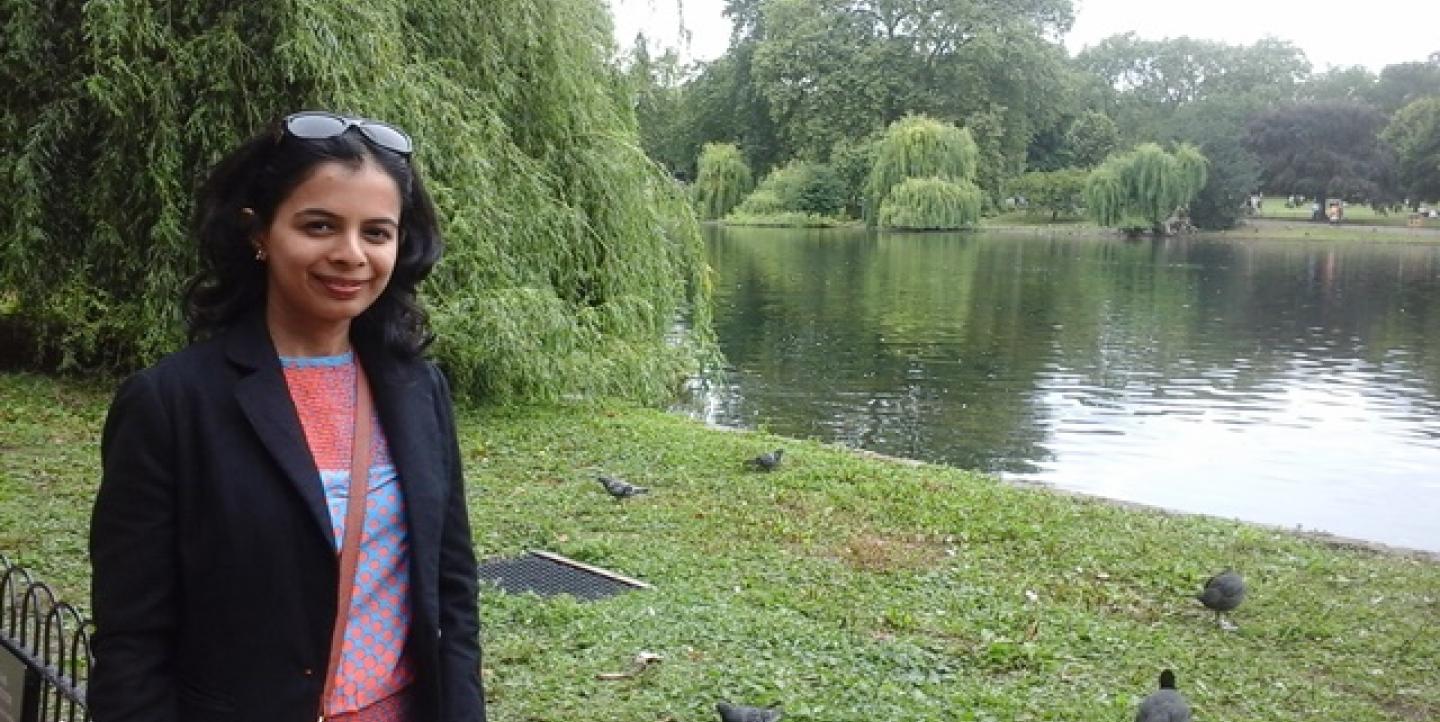Deepti Ganapathy has nearly a decade of experience working as a journalist in India. She’s covered beats ranging from sustainability to women’s issues to health for publications like The Times of India, CNN and NatGeo Traveller.
But after receiving her Ph.D. in communication, Ganapathy chose to pursue a career in academia. As an assistant professor at NMIMS Bangalore’s School of Business Management, she teaches journalism and communication courses to bridge the gap between what she’s learned in the field and what is currently being taught in universities today.
She most recently used IJNet to discover the East West Center’s 2016 International Media Conference in New Delhi, where she led a workshop on social media tools for entrepreneurship, and continues to use IJNet to find new opportunities.
We spoke with Ganapathy about pursuing journalism fellowships, searching for good news stories and more:
IJNet: How did you first get your start in journalism?
Ganapathy: After graduating in physics, mathematics and computer science, I decided to get my master’s in communication and media. All the recognitions I was receiving as a debater and writer strongly pointed toward a career path in the field of communication and creativity... I started as an intern with India’s leading national television network, NDTV, and got an opportunity to work under senior news producers... I moved to print media and worked full-time for eight years before doing my doctorate in communication.
What was the most challenging story you faced when you worked as a journalist?
One story I covered during my internship at NDTV remains etched in my mind. It was an investigative report on the use of children as labourers in iron ore mines in a region in north Karnataka in India. The mining mafias were notorious in that region. We had to get a lot of footage on tape and get sound bites from these children and their parents. The moment they saw us, they ran away and refused to speak. Capturing the misery of these children, who could not express this themselves, and showing the story to the world was a challenge. However, my mentor Nupur Basu, whose documentaries are aired on BBC, was covering this story and she was able to portray this reality with a lot of emotion and depth. The entire process was a revelation for me.
You found the East West Center's International Media Conference through IJNet. What was that experience like?
It was a wonderful experience. We were invited to a dinner reception at the residence of the U.S. Ambassador to India and I met a lot of journalists from the region. After my session, the Director of the Ministry of Information and Broadcasting for the Sri Lankan government invited me to speak at an international conference in Colombo to commemorate the Right to Information Day. Attending conferences like these give you immense opportunities for networking and getting to know the work done by journalists across the globe. I was particularly interested in the session on the Panama Papers case, where the journalists involved in breaking this story shared their experiences.
How else do you use IJNet?
I also did a certificate program that ICFJ conducted with the United Nations Foundation and published an article on climate change as part of this program. I regularly look for such opportunities to keep up with the latest happenings in the world of journalism. Though the core principles of journalism remain, the medium is fast evolving and as journalists we need to reach out through these media to our readers and viewers.
What's the top piece of advice you would give to aspiring journalists? What lessons do you try to give to your students?
I always tell my students to look for stories in the least apparent characters or situations. A story is not going to fall into your lap, and it often takes a lot of research, interviews and fact-finding for a story to emerge. Unfortunately, journalists today are comfortable sitting at their computers, reaching out to sources through social media and not venturing out into the field. I would urge them to step out into the dust and grime at least once a week and see for themselves how things appear once the dust has settled down. It is easy to view the world through rose-colored glasses. True journalism calls for throwing away that lens and getting that “nose for news.”
This conversation has been condensed and edited for clarity.

